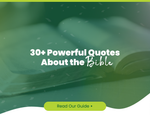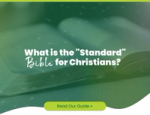Have you looked in the mirror today?
Les Ellison
If you went to church on Ash Wednesday you probably had the sign of the cross drawn on your forehead with the ash of last years Palm Crosses.
Is your Ash Wednesday ash cross still visible today, or has it disappeared? What if instead of ashes, the sign of the cross was made on your forehead with a special dye that lasted the whole of Lent?
Unusual insiders view for Lent
If you haven’t yet found a devotional course to help you get the best out of Lent, then it isn’t too late. You might have missed the thought for Ash Wednesday, but reading this might count instead – especially if follow up with the course it’s taken from.
‘A Lenten Hobo Honeymoon’ is one of the most unusual, concise and visually memorable Lent devotionals. Still available in time for the first full week of Lent, it’s a course that really is for those who get more from the journey than the destination.
Pilgrims homeward bound
To spend Lent as a honeymoon seems a contradiction, but the key is in the word 'Hobo'. Originally American slang for a migrant worker, Hobo is made from the first letters of the words homeward and bound. Originally referring to Civil War veterans working their way home, the word might also refer to agricultural casual workers, 'Hoe-boys'.
Today as then, Hobos being migrants on the move have ‘no place to lay their heads’, opening up a direct comparison with the central traveller on the Lenten road that leads to the cross and with all Christians on the restless journey of faith.
Toward the one who loves the best
'A Lenten Hobo Honeymoon' is a journey of love: travelling with no settled home but always moving on and closer toward the one who loves the best. Hobos are not ‘bums’, vagrants, scroungers or tramps: they are pilgrims working their passage home.
The surprising feature of this Lent course is that Hobos are not only travellers and workers, they’re also communicators and artists. Each day’s short reading begins with a hand-drawn Hobo Symbol like the one on the gate post in the cover illustration.
Secret symbols of the journey home
These drawings are Hobo icons to communicate what kind of welcome a town, home or individual offers to the Hobo in need. Chalked pictures indicate fierce dogs, handouts, good camps and kindly women. The symbols are like a secret code written and understood only by travellers – not residents.
Like Hobo symbols, says writer Edward Hays, the mark of Ash Wednesday is the symbol of the traveller not the resident. It’s a tribal badge that marks the Christian out from the world. If you want another Lent symbol to go with the ashes of Ash Wednesday, Edward Hays even tells you how to make and wear sackcloth!
Lent course for the Easter journey
So there’s your Ash Wednesday reflection - a little late, but if you type ‘Lenten Hobo’ into the search bar on any Eden.co.uk page you can order ‘A Lenten Hobo Honeymoon’ and qualify for free delivery, or you can choose the express option to get the most out of your Lenten journey home.
Edward Hays: Author snapshot
Born in Lincoln Nebraska, Edward Kay was himself a Hobo from an early age. Running away to join a Benedictine Abbey, he was ordained in 1958 and began an itinerant ministry to the travelling homeless. After a Hobo journey through the Near East, Edward Kay returned to direct the contemplative prayer community, 'Shantivanam', in the forests of Easton, Kansas. He still keeps his packed Hobo bag under his bed, restless to on the move again.
Latest Blogs

Gifts
Finding Your Symbol of Faith: A Guide to Christian Cross Necklaces
Looking for the perfect symbol of faith? Explore our guide to Christian cross necklaces, from rustic wooden designs and sturdy men's chains to elegant silver pendants.

Gifts
The Best Christian Gifts for Under £20
Looking for a meaningful gift that won't break the bank? Explore our guide to the best Christian gifts under £20, from inspiring journals to beautiful home decor.

Gift Guide
15 Confirmation Gift Ideas for Boys and Girls
Celebrating a confirmation? Discover 15 meaningful gift ideas for boys and girls, from youth Bibles and jewellery to inspiring journals and keepsakes.

Bible
30+ Powerful Quotes About the Bible (For Inspiration in 2026)
Looking for inspiration? Discover a curated collection of the most powerful quotes about the Bible, from famous historical figures to modern theologians and Scripture itself.

Bibles
What is the "Standard" Bible for Christians?
Is there an "official" Bible that all Christians use? We explain the difference between the NIV, KJV, and ESV, and help you find the standard text for your church or personal reading.

Bible
"I Keep Failing to Read the Bible" – 5 Tips to Make the Habit Stick
Do you start a Bible reading plan only to quit a few weeks later? Stop the cycle of guilt. Here are 5 psychological tips and practical changes to help you build a Bible habit that actually lasts in 2026.
